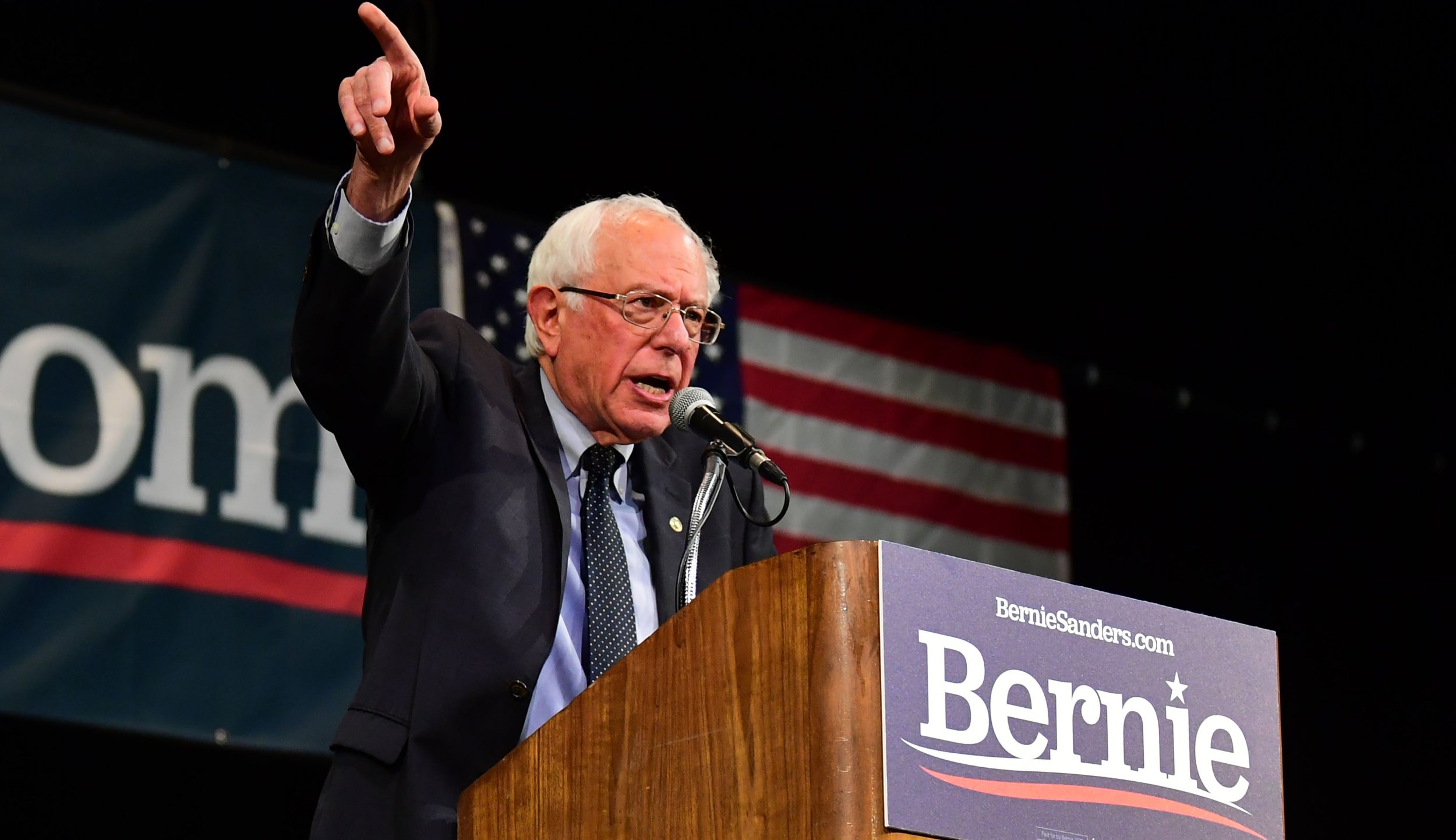Meet the Bernie-backing Alaska voter whose family was nearly crushed by Trump’s government shutdown
‘Anything that happens in Washington impacts my everyday life … and yet I never know what to expect with Trump and his administration’

Christina Sinclair’s newborn was just a few months old during last year’s government shutdown – a record-long impasse which Donald Trump said he was “proud” to own in order to advance his agenda. The new mother lives in North Pole, Alaska, along with her husband, a combat veteran and federal firefighter, who relies on a steady paycheck from the government to pay the couple’s mortgage.
When those paychecks stopped coming in, “things got really, really, really scary," Sinclair says while recalling the shutdown in a recent interview with The Independent.
“I was panicking … though my husband doesn’t get paid during shutdowns, he still had to go to work,” Sinclair adds. “Anything that happens in Washington impacts my everyday life … and yet I never know what to expect with Trump and his administration.”
The 31-year-old is now paying close attention to the Democratic presidential primaries and hoping the eventual nominee will unseat Trump in the 2020 elections.

Sinclair has also become very heavily involved in Alaska’s politics since the last election, and now currently serves as the chair of the Interior Democrats of Alaska, an organisation working to elect Democrats across the state.
She attributes the reason for her engagement in politics to Bernie Sanders, the Vermont senator running for president in 2020.
“It actually kind of started with Bernie Sanders,” Sinclair recalls. “I was always kind of interested in politics and I followed big stories and issues, but in 2016 I got really involved. I was a state delegate for Bernie Sanders and I went to our Alaska state Democratic convention in 2016, and Bernie got over 80 per cent of the vote from the Democrats.”
Inspired by the day’s events, she says she decided on a whim to run for the Alaska House of Representatives, knowing full well she wouldn’t win in her overwhelmingly Republican district. “But it was nice to get a message out.”
The 2020 election comes at an interesting time for Alaska voters, as the state is currently transitioning from a caucus system to a party-run primary. Alaska is one of the few states that doesn’t pay towards or get involved in the primary process, leaving the bulk of the effort to people like Sinclair.
She’s essentially helping to build a statewide primary system while educating people on the process, and says one of the most difficult challenges is “trying to get to the rural Alaska” voters who tend to stay at home during the day of the election.
“There are villages that are cut off a lot,” she says. “But we need to get their votes. Because they count too.”
While Sinclair is keeping her mind open throughout the presidential primaries and will ultimately “vote blue no matter who," she says Bernie Sanders is her top choice to take the nomination and go on to compete against Trump in the general election.

And when it comes to some of the top issues she’s focusing on ahead of 2020, Sinclair says she wants a candidate that will expand adequate health services and veterans’ care throughout Alaska, a state that sorely lacks both necessities in many regions.
“My husband is not afraid to share this, so I’ll share it with you: he has PTSD,” Sinclair says.
Her husband wanted to get counseling for his post-traumatic stress disorder, she says, but there isn’t a Veterans Administration hospital in Alaska – just a single clinic in Anchorage and a few satellite clinics in a handful of towns across the vast state.
“Alaska has the highest amount of veterans per capita and it’s hard to get any VA care,” she notes. The issue results in hours of travel and arduous roadblocks in getting any sort of decent care, according to Sinclair, who wants the VA to have a totally “upgraded process."
“They have paper backlogs,” she adds. “Everything is so outdated.”
Sinclair supports Sanders’ proposals to reform the VA, and says she “can’t believe that there are veterans that love” Trump.
“He’s said things about McCain being a prisoner of war, that he’s no hero and he likes people that don’t get captured. What?!” she says. “I really haven’t seen much from Trump or his administration helping veterans in any real way. And to privatise the VA system? I think that’s a terrible idea!”
She also says she supports plans put forth by candidates like Elizabeth Warren and Pete Buttigieg, who she notes is a veteran as well.
And yet it seems Sinclair’s heart is still set on Sanders becoming the nominee.
“I voted for Hillary [Clinton] because I vote blue no matter who, but I was really mad that Bernie didn’t get it,” she says about the 2016 Democratic primaries. “I really feel as though he should have gotten it, and there’s a lot of people with that opinion that left the Democratic Party that I know of – at least here in Alaska. But I don’t feel like abandoning the party is gonna help anything.”
So, rather than giving up on the party, Sinclair decided to get to work.
In a lot of ways, that spirit matches Sanders’ response to his defeat in the 2016 primaries. The Vermont senator worked to incorporate his constituents into the party’s national platform soon after, going on a “Unity Tour” with Democratic national chair Tom Perez and working to make the primary process within the party one that is more equitable to non-establishment candidates.
Sinclair says that 2020 is also a crucial election for Alaska voters as the state slashes funding for a variety of fundamental programmes.
“Right now Alaska’s broke. The oil companies have made their way into politics, of course, so there are people who are on the payroll for ExxonMobil that are in the Alaska House and Senate,” she says. “So there’s a big deal about how oil is going to impact Alaska, and how we may need to seek new revenue, and because of that there’s a lot of things being cut right now, like Medicare, education, the university is getting cut – it’s getting hard.”
On top of that, she says climate change is a priority issue for Alaskans: “We are seeing and suffering the devastating effects firsthand. The next president should have a solid plan for action to not only curtail climate change, but to provide relief now to those affected by climate change.”
While Trump won Alaska with just over 51 per cent of the vote, Sinclair predicts the hard work she and other Democrats are doing across the state to educate voters about the new primary system may ultimately pay off.

Alaska Republicans decided not to have a primary in 2020, Sinclair notes, “so they believe Trump is going to get the nomination and that’s it."
She says that decision by state Republicans – paired with the many scandals plaguing Trump’s presidency – could result in a disengaged Republican voting bloc across the state that ultimately declines to partake in the next election.
“I think the Democrats and independents are going to go vote,” she says. “I don’t think for the general election that Republicans will show out as much.”
At the end of the day, Sinclair says she believes it all comes down to who the party chooses as its eventual nominee. I ask her whether that means electing someone in a moderate lane, or a candidate like Sanders.
“I’m not sure if we need a moderate,” she says, “or if we need someone like Bernie … to go in there and just extremely say, ‘Look, this is what we need to have done for America to be better.’”
Join our commenting forum
Join thought-provoking conversations, follow other Independent readers and see their replies
Comments
Bookmark popover
Removed from bookmarks